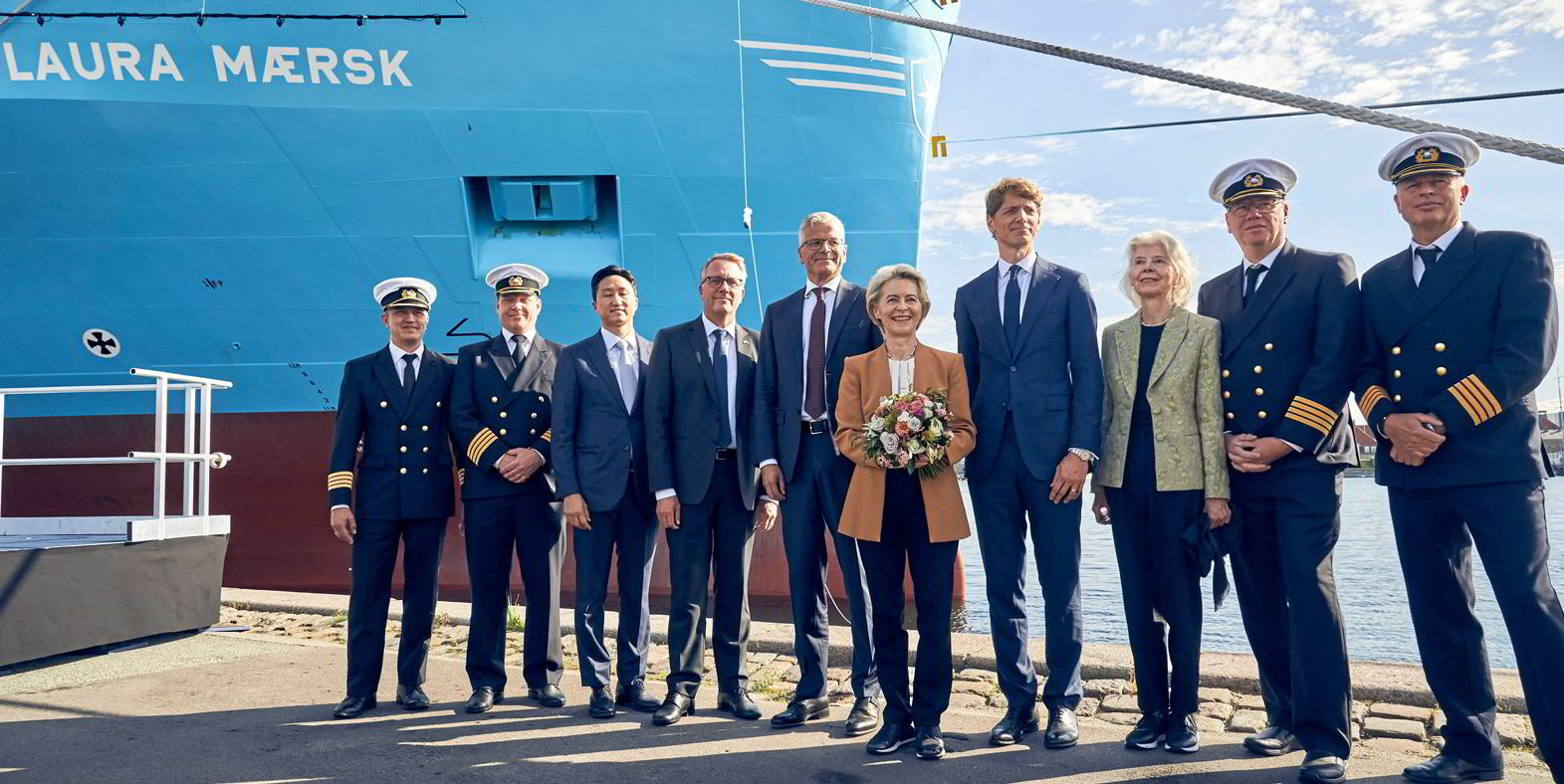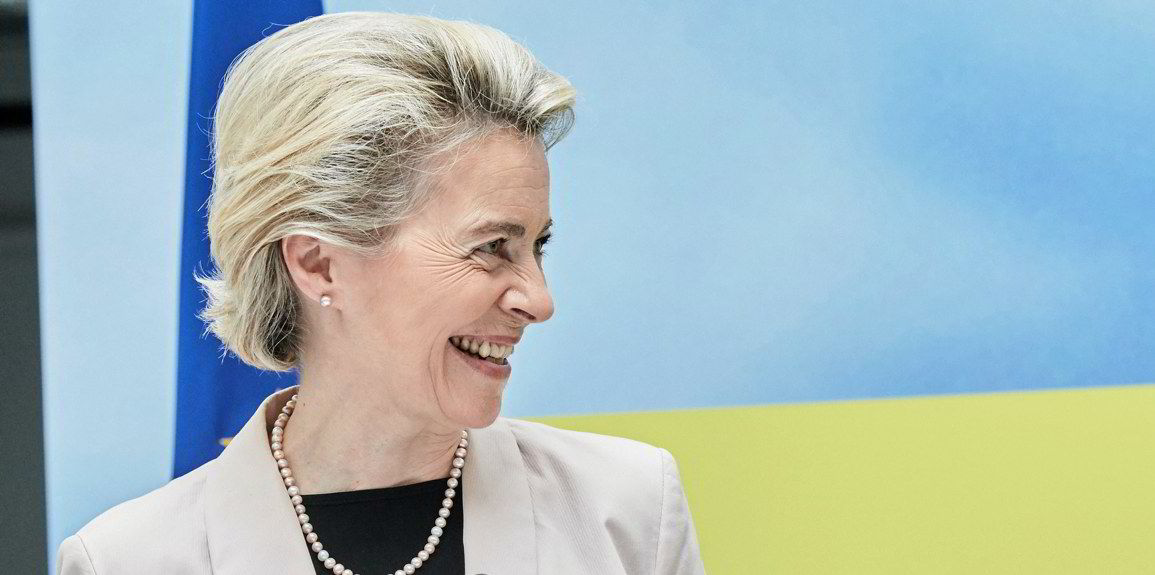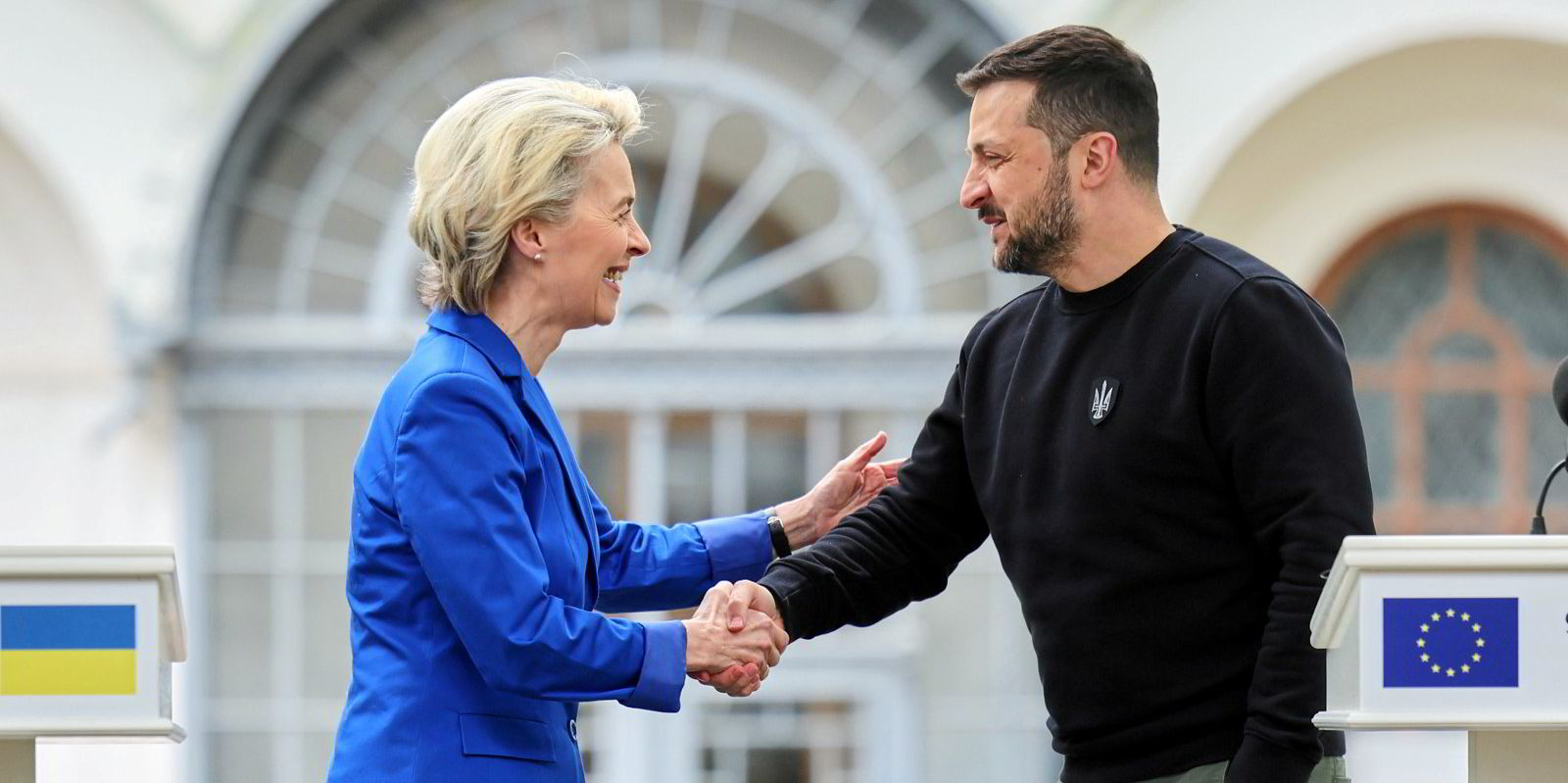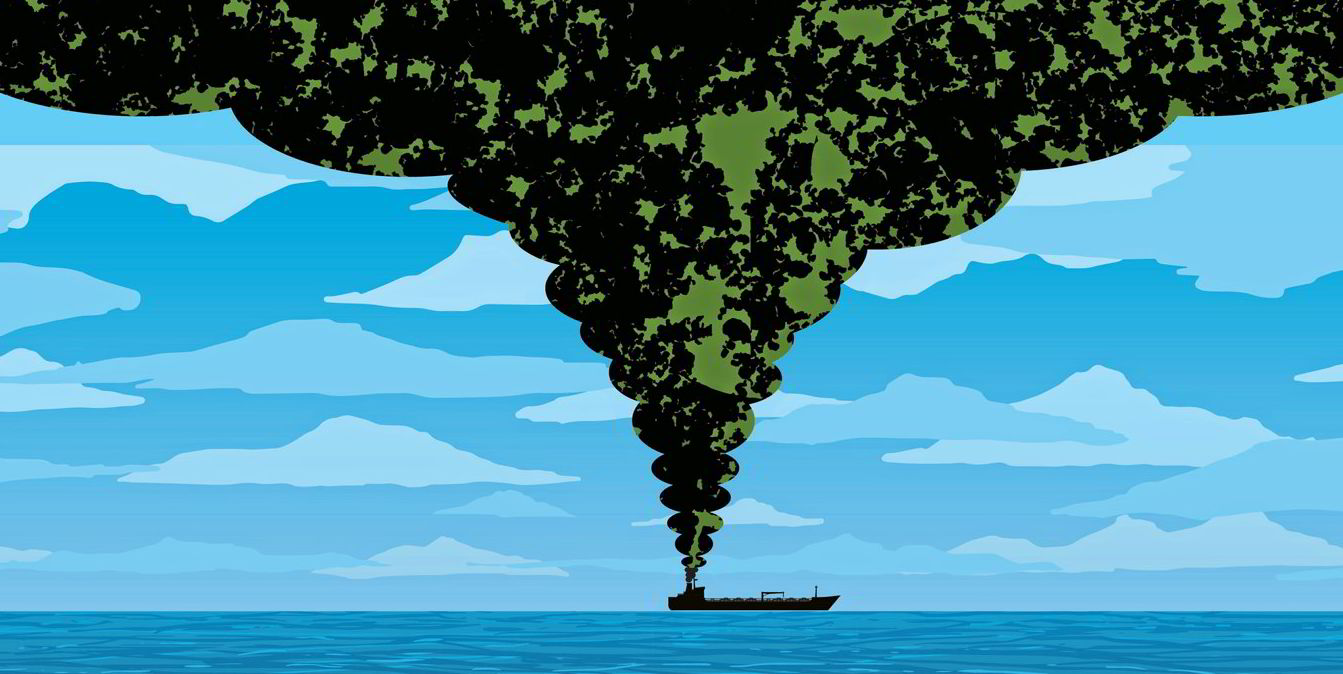If you ask Brussels insiders who they think is the most important figure in Europe’s green shipping drive, they will not hesitate long before pointing to the European Commission president.
Without Ursula von der Leyen, a career politician from Germany who turned 65 in October, the European Union might not have taken its most momentous maritime policy decision in recent years — shipping’s inclusion in the EU Emissions Trading System.
“That actually started with her,” one shipping policy player says.

When she presented her candidacy for the post four years ago, von der Leyen made sure the world’s first shipping carbon tax formed a prominent part of her platform.
Shipping’s inclusion in the ETS was an unambiguous pledge on the very first page of her manifesto as part of the Green Deal — Europe’s long-term decarbonisation strategy that became her signature policy.
The FuelEU Maritime rules, which set carbon intensity limits for shipping, were another key part of her programme.
Her line of thinking in all of this was simple: every polluter needs to pay for its emissions, and shipping has not been paying so far, so it needs to be brought into the fold.
“It wasn’t meant as a punishment for the sector. It was more that she thought of decarbonisation as an opportunity and wanted shipping to be part of that opportunity,” the policy player said.
From congregations to parliaments
Strongly held beliefs defended with a missionary zeal are something von der Leyen was brought up with.
She was born Ursula Albrecht, the third of seven children in a staunchly conservative Protestant home led by her father, a career EU functionary and later high-ranking politician.
A part of her father’s political campaign, she sang religious songs for charity on German television; she even made a record alongside her parents and siblings.
She emulated her parents’ big family model. Her marriage to medical scientist Heiko von der Leyen produced seven children. While raising them, she graduated as a doctor, studying and practising in Germany and the US.
She began her political career late, at 43, by joining her father’s Christian Democratic Union and began a slow but steady rise from local to federal politics.

Her career accelerated after Angela Merkel became head of the Christian Democrats and later chancellor. Women, particularly working mothers like her, fitted well into the reformed image that Merkel was trying to shape for her party.
A major plank of the Merkel agenda was the green energy transition. It was a double-pronged strategy meant to kill two birds with one stone.
By putting Germany at the forefront of decarbonisation, she hoped to carry its industrial leadership into the 21st century.
At the same time, this would benefit the party politically by improving its image with younger, more environmentally minded voters.
Von der Leyen’s European Green Deal, a multibillion-euro programme to decarbonise the EU, feels like a Merkel programme for Europe, writ large.
Going global
By switching to Brussels as head of the EC, von der Leyen returned to familiar ground. She was born in the city in 1958 when her father was a high-ranking European Community official and she spent the first seven years of her life there.
The big question is whether von der Leyen will seek a second term as head of the European Commission when her first term expires next year.
Some observers believe she will, even though rumours persist that she might become the next secretary general of Nato instead — a belief strengthened by her staunchly pro-Ukraine stance against Russia.
A second von der Leyen term would most likely mean Brussels will keep up the pressure on the International Maritime Organization to emulate EU rules, possibly by unilaterally adopting even more ambitious environmental targets.
One thing von der Leyen will certainly not give the shipping community is a dedicated commissioner for shipping.
Voicing a desire expressed by several shipping players, Cypriot president Nikos Christodoulides said in early October that Europe’s maritime industry would be better served by having its own commissioner instead of incumbent Adina Valean, whose brief covers rail, road and aviation as well.
Maritime players feel neglected by Valean, who often skips shipping conferences and dispatches instantly forgettable videotaped messages instead.
Brussels insiders, however, are sceptical about the idea of a maritime commissioner.
“The chances for this are zero,” one said.
“If you have a shipping commissioner, you will need to have commissioners for all other modes of transport and that will become a total mess”.





